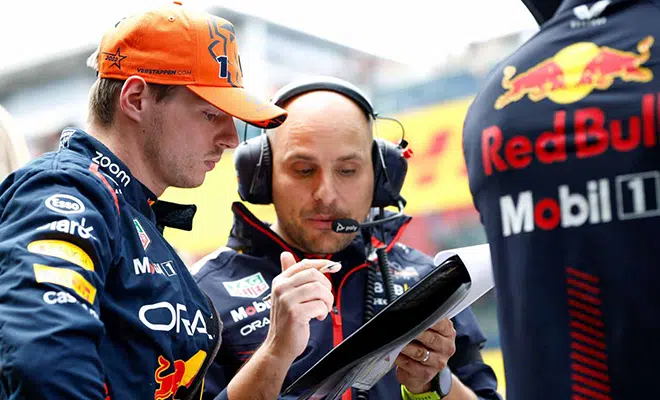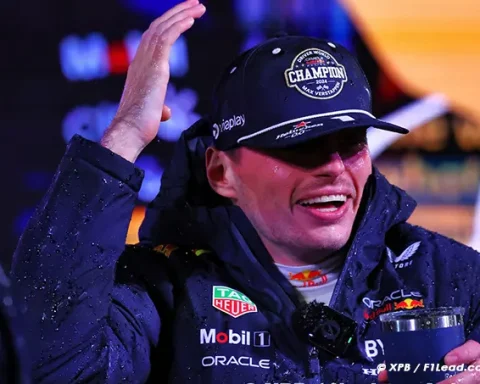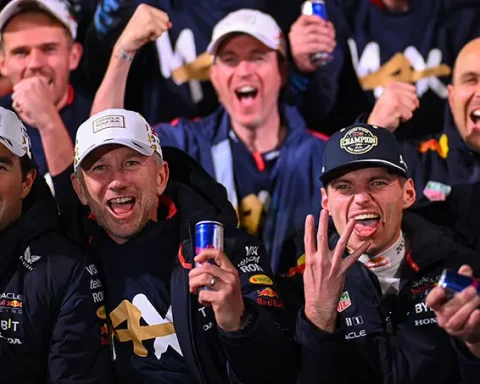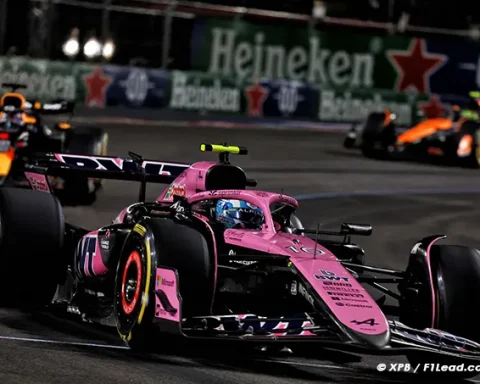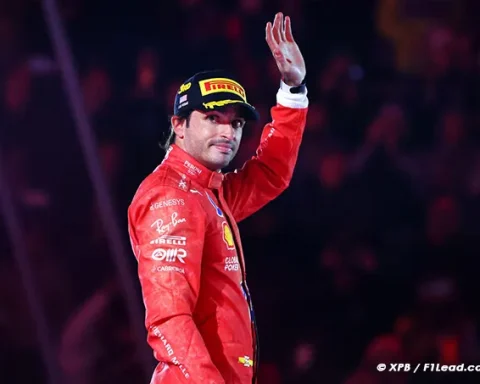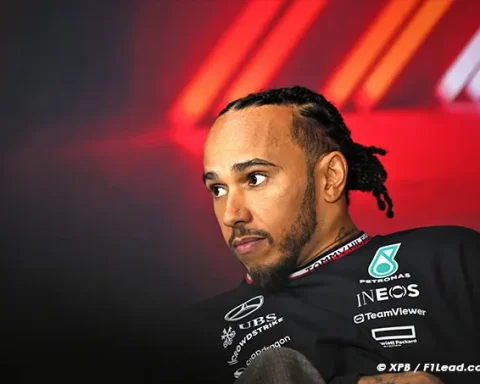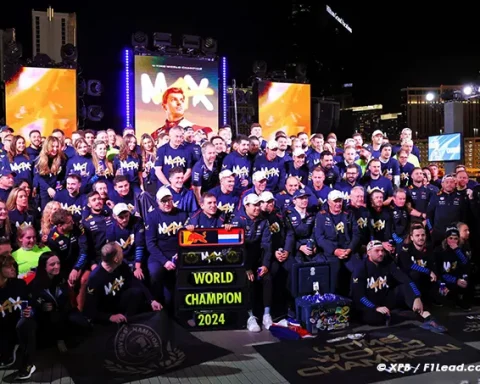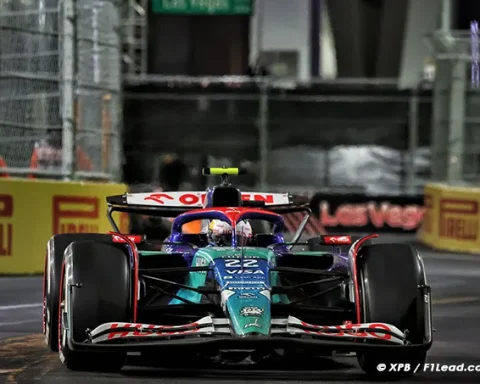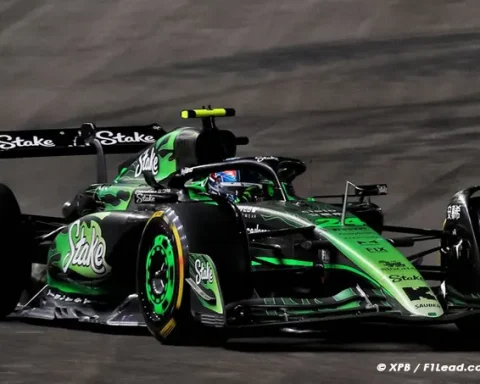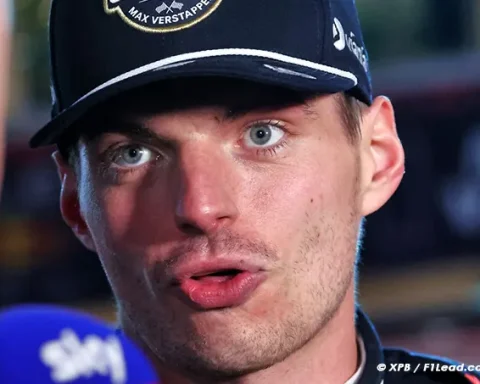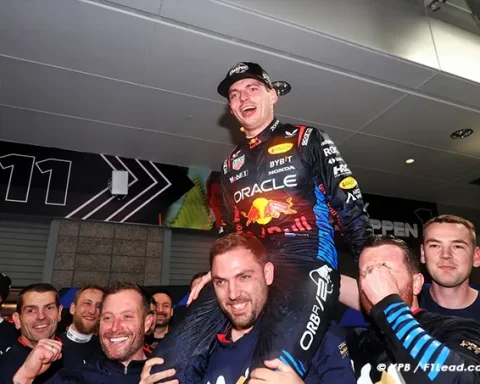Exploring the crucial role of F1 race engineers, this article delves into how these pivotal figures enhance driver performance and strategy, spotlighting the unique partnerships formed ahead of the 2024 season.
The role of race engineers in F1 is pivotal for the drivers’ weekend, and these men and women from the paddock have been increasingly spotlighted in recent years, thanks to the growing number of radio broadcasts on television.
Before the 2024 season begins, let’s review who is paired with which driver… although changes are possible before the first race.
Here is the list of the 20 drivers accompanied by their respective race engineers. It’s worth noting that Lando Norris prefers working with two different engineers, alternating between them. A unique exception on the grid!
F1 team driver and race engineer
| eam | Driver | Race Engineer |
|---|---|---|
| Red Bull | Max Verstappen | Gianpiero ‘GP’ Lambiase |
| Sergio Perez | Hugh Bird | |
| Mercedes F1 | Lewis Hamilton | Peter ‘Bono’ Bonnington |
| George Russell | Marcus Dudley | |
| Ferrari | Charles Leclerc | Xavier Marcos Padros |
| Carlos Sainz | Riccardo Adami | |
| McLaren F1 | Lando Norris | Will Joseph and Jose Manuel Lopez |
| Oscar Piastri | Tom Stallard | |
| Aston Martin F1 | Fernando Alonso | Chris Cronin |
| Lance Stroll | Ben Michell | |
| Alpine | Esteban Ocon | Josh Peckett |
| Pierre Gasly | Karel Loos | |
| Williams | Alex Albon | James Urwin |
| Logan Sargeant | Gaetan Jego | |
| Visacashapprb | Yuki Tsunoda | Mattia Spini |
| Daniel Ricciardo | Pierre Hamelin | |
| Stake F1 | Valtteri Bottas | Alex Chan |
| Zhou Guanyu | Jorn Becker | |
| Haas F1 | Kevin Magnussen | Mark Slade |
| Nico Hulkenberg | Gary Gannon |
Bonnington, Lambiase: F1’s Top Engineer Duo
Peter Bonnington and Gianpiero Lambiase are perhaps the most renowned race engineers in F1, likely because they work with the two most popular drivers, Lewis Hamilton and Max Verstappen, respectively.
However, the broader public might be less familiar with the names of other race engineers.
At Aston Martin F1, Ben Michell (with Lance Stroll) and Chris Cronin (with Fernando Alonso) occupy this pivotal role, not just during Grand Prix weekends.
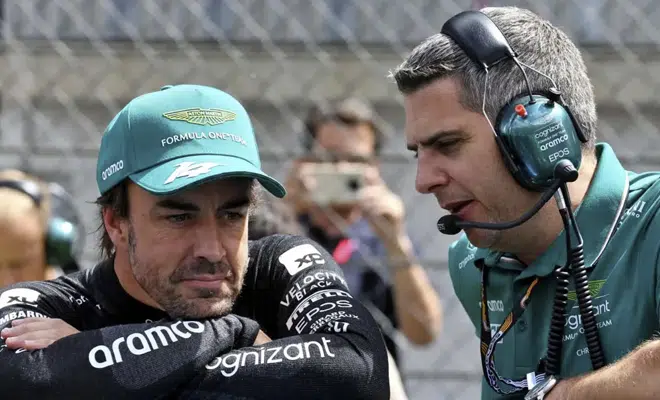
They serve as the eyes, ears, and sometimes the brains of the lead drivers amidst the heat of battle. And it’s often these engineers with whom drivers verbally clash during races, discussing strategy or race directives…
Chris Cronin (photo), the race engineer for Fernando Alonso, offers a behind-the-scenes look at this job to start.
“A significant part of our job involves bridging the gap between the data provided by Aston Martin Racing Technology and the driver – deciding which information to convey to the drivers, as well as when and how to communicate it.”
Beyond Broadcast: The Unheard F1 Dialogues
On television, the radio communications between race engineers and drivers are sometimes broadcast… but this is merely a drop in the ocean, Cronin continues.
“There’s a lot we say to drivers during the race that you’ll never hear on the live TV broadcast.”
“We can listen to everything transmitted to other cars, between drivers and their engineers. After a Grand Prix, we have an audio file of about 15 minutes from each driver and each race engineer, from which we can decipher codes and better understand their approach and strategy.”
Ben Michell, the race engineer for Lance Stroll, also notes that if one were to listen to all the radio exchanges between engineers and drivers, it might quickly become tedious… However, TV also sometimes distorts the nature of communications.
“They (TV production) just pick snippets of the team’s radio… and sometimes the context is completely different – but that’s part of the game, and you have to accept it.”
“Many things that aren’t broadcast are mundane tasks like button changes, which may not be exciting to listen to but are important – and we listen to other teams discuss such things on team radio.”
The race engineer is, of course, not alone: they can and must rely on other engineers to build their communications, Michell emphasizes.
“You quickly realize you can’t do the job alone.”
“To be a good race engineer, you need to rely on the support, skills, and time of those around you. You’re part of a team, and there are many people around you who can focus on specific things.”
“As a race engineer, you don’t have time to focus in detail on every area. Instead, you must trust your colleagues to provide the information and relay it to the driver.”
“Trying to do everything yourself is not efficient and will lead to burnout. It’s a privilege to be at the end of this information flow, delivering it to the driver, but if you attempt to handle it all on your own, it will not end well.”
“You need to ensure the car and strategy are exactly where they need to be. Doubts or changes shouldn’t start on the starting grid.”
Building a trusting relationship with the driver, the race engineer’s challenge
For performance to be optimal, technique plays a big role, but so do trust and emotional intelligence.
Cronin, Alonso: Building Trust, Enhancing Speed
Inheriting Fernando Alonso, Chris Cronin had to build a trustful relationship with a highly experienced driver who had his preferences.
“The first three to six months of building the relationship and understanding between you, figuring out how you can best support each other to do the best job possible, are among the most challenging.”
“You try, as quickly as possible, to only provide information that will truly help them, make a difference – that will enable them to go faster. There are many peripheral things a driver might think they need to know, but that’s not the case. It only dilutes the information they need to focus on.”
“When Fernando came on board, he immediately said, ‘This is what I like, and this is what helps me go fast.’ Having that kind of direction shortens the familiarization process, whereas with younger drivers, it might take a bit longer to find what they need.”
As for Michell, he was a performance engineer before becoming Lance Stroll’s race engineer.
“It was almost a shock to become Lance’s engineer directly.”
“We had to dive straight into racing. I’ve held other roles, significant ones, both on track and at the factory, but roles without the same time pressure as a race engineer.”
“I’ve won championships in other categories and hope to do the same in F1, but if you think winning a championship will fundamentally change you as a person or change your life, that’s not the case…”
“Winning a championship won’t be the last piece of the puzzle that fulfills you as a human being. It doesn’t work like that. What matters is the process – the journey to get to that point – and how you play your role in helping the driver and the team achieve their ambition.”
2024 F1 team driver and race engineer. F1 team driver and race engineer
- ReadMore>Frentzen’s Missed McLaren Move Due to Joke on Ron Dennis
- Following us on Facebook and Twitter.
